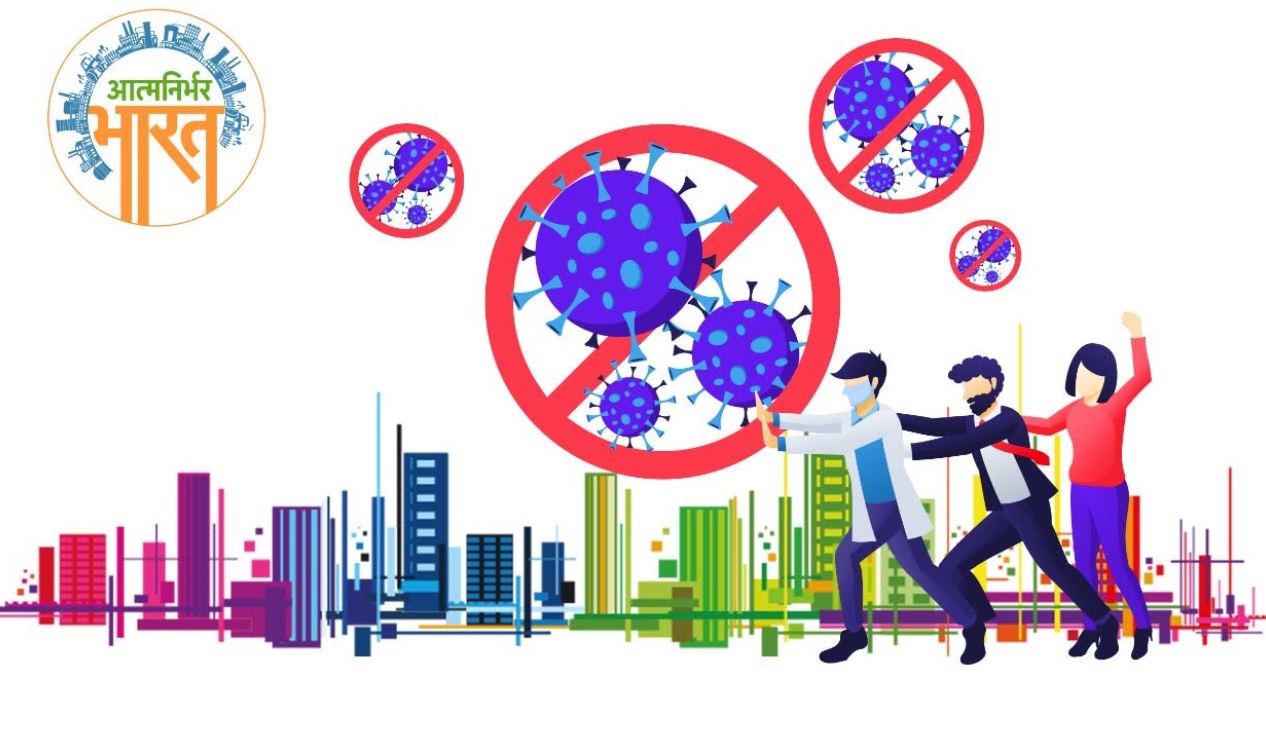AnalyticsBreaking News
In quest of opportunities in the backdrop of COVID-19 pandemic, writes Prosenjit Nath

June 15: The keyword of the last decade was globalisation. The world at large was riding on the wave of the great expansion of business, travel and trade across the world. Offshoring and international supply chains were an integral part of the world economy. India also leapt onto the bandwagon and became one of the most sought after offshore destinations for services and manufacturing. Indian industries also diversified their supply chains worldwide.
 All was well until the Covid-19 pandemic reared its head. The dark side of globalisation was the astonishing speed at which the virus was spread across the globe. Countries responded with lockdowns and sealed their borders. Globalised supply chains and businesses ground to a halt. On the one hand, manpower was difficult with people being shut in at home. In places, where there was manpower, the supply chains being cut off left businesses unable to operate.
All was well until the Covid-19 pandemic reared its head. The dark side of globalisation was the astonishing speed at which the virus was spread across the globe. Countries responded with lockdowns and sealed their borders. Globalised supply chains and businesses ground to a halt. On the one hand, manpower was difficult with people being shut in at home. In places, where there was manpower, the supply chains being cut off left businesses unable to operate.
 Countries and business alike are now rethinking their strategies by incorporating the bitter lessons learned. There has never been a better time to take a crisis and mould it into an opportunity to change for the better. Prime Minister Narendra Modi has pointed out this clearly in his message to the country to become self-reliant. While accepting that India is very much a part of the global economy, he has also requested businesses and individuals to strive to be self-reliant at every level.
Countries and business alike are now rethinking their strategies by incorporating the bitter lessons learned. There has never been a better time to take a crisis and mould it into an opportunity to change for the better. Prime Minister Narendra Modi has pointed out this clearly in his message to the country to become self-reliant. While accepting that India is very much a part of the global economy, he has also requested businesses and individuals to strive to be self-reliant at every level.
 Many companies had become overly reliant on supply chains that were from one country alone. Business strategists had always recommended a China+1 policy. This is the policy where every company would have at least one supplier for every item in a country other than China. Businesses who ignored these recommendations faced the worst ramifications when China was badly hit by Covid-19. The problem spread as Covid-19 was spreading. The fallout of the health crisis also led to an economic crisis. The Covid-19 crisis has been a wake-up call to these businesses. Think tanks globally have forecast that companies will now start diversifying the geographical locations that they source from.
Many companies had become overly reliant on supply chains that were from one country alone. Business strategists had always recommended a China+1 policy. This is the policy where every company would have at least one supplier for every item in a country other than China. Businesses who ignored these recommendations faced the worst ramifications when China was badly hit by Covid-19. The problem spread as Covid-19 was spreading. The fallout of the health crisis also led to an economic crisis. The Covid-19 crisis has been a wake-up call to these businesses. Think tanks globally have forecast that companies will now start diversifying the geographical locations that they source from.
 It is very clear that businesses will not go right back to how they used to be. Risk mitigation will now be given more importance. As a result of this, companies will start preferring to source their inputs locally first and closer to home next. This is a golden opportunity for Indian companies to change their supply chain strategies. Instead of thinking that cheaper is the best, they should think that what is safer is best. This is exactly what our Prime Minister has labelled as ‘Atmanirbhar Bharat.’
It is very clear that businesses will not go right back to how they used to be. Risk mitigation will now be given more importance. As a result of this, companies will start preferring to source their inputs locally first and closer to home next. This is a golden opportunity for Indian companies to change their supply chain strategies. Instead of thinking that cheaper is the best, they should think that what is safer is best. This is exactly what our Prime Minister has labelled as ‘Atmanirbhar Bharat.’
 When big and medium-sized industries buy local, they create an environment where the small and medium enterprises that supply them flourish. The money that circulates in the economy is a boost to all concerned. Having local suppliers also helps insulate industries from unprecedented supply chain disruptions such as we have witnessed in recent times. A sustained supply chain helps business to go on as usual. When the consumer also has the mindset of buying local, he/she supports the local economy. When the supply and demand are sustained, the economy flourishes despite global disruptions.
When big and medium-sized industries buy local, they create an environment where the small and medium enterprises that supply them flourish. The money that circulates in the economy is a boost to all concerned. Having local suppliers also helps insulate industries from unprecedented supply chain disruptions such as we have witnessed in recent times. A sustained supply chain helps business to go on as usual. When the consumer also has the mindset of buying local, he/she supports the local economy. When the supply and demand are sustained, the economy flourishes despite global disruptions.
 With countries looking to diversify their supply chains, India stands to benefit in a big way. Our industries, services and infrastructure are already well proven in the global market. India is a safe and stable alternative to the traditionally favoured suppliers. It is the right time to seize this opportunity that has come in the midst of a global disaster. History has proven time and time again, that it is the ones who are able to weather the storm and see opportunity in the midst of difficulty who succeed.
With countries looking to diversify their supply chains, India stands to benefit in a big way. Our industries, services and infrastructure are already well proven in the global market. India is a safe and stable alternative to the traditionally favoured suppliers. It is the right time to seize this opportunity that has come in the midst of a global disaster. History has proven time and time again, that it is the ones who are able to weather the storm and see opportunity in the midst of difficulty who succeed.
 The Atma-Nirbhar Bharat Abhiyan is the fiscal stimulus that the government has put in place to support industries. But at the end of the day, it is the individuals who make decisions. Every citizen has to take it as a personal responsibility to support and encourage self-reliance. Being a part of the global market is important, but keeping the local market healthy is essential. As the world begins to unlock and restart businesses, the cost has been very high in terms of human lives lost. But the lessons learned should not be forgotten.
The Atma-Nirbhar Bharat Abhiyan is the fiscal stimulus that the government has put in place to support industries. But at the end of the day, it is the individuals who make decisions. Every citizen has to take it as a personal responsibility to support and encourage self-reliance. Being a part of the global market is important, but keeping the local market healthy is essential. As the world begins to unlock and restart businesses, the cost has been very high in terms of human lives lost. But the lessons learned should not be forgotten.
(The writer Prosenjit Nath is an IT Engineer by profession)





